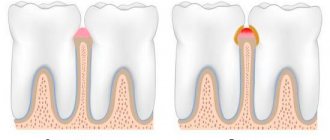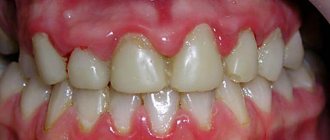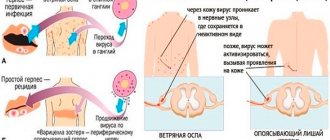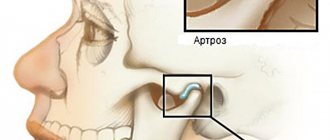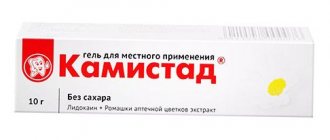Gastritis is an inflammatory or inflammatory-dystrophic disease that affects the inner surface of the stomach. Normally, the mucous membrane lines the entire surface of the organ and plays an important role in the digestion process. Its glands are capable of producing hydrochloric acid, bicarbonate, gastric juice, lipase, the enzyme pepsin and other substances responsible for protecting the body from pathogenic microorganisms, activating metabolic processes in the body, and breaking down fats and proteins.
Classification of the disease
There are many types of pathology, but according to the severity of the signs of the disease, the degree of damage to the mucous membrane, and the frequency of symptoms, acute and chronic gastritis are distinguished. In the first case we are talking about a newly diagnosed disease, in the second - about repeated attacks of the disease.
Acute gastritis can be:
- Catarrhal.
- Fibrinous.
- Corrosive.
- Phlegmonous.
Chronic gastritis is divided into the following types:
- Bacterial. The cause of the development of pathology is the bacterium Helicobacter Pylori. The pathogen is resistant to the acidic environment of the organ and lives on its inner surface.
- Chemical. This type of gastritis occurs due to the aggressive effects of substances of endogenous and exogenous origin - bile, alcoholic beverages, some medications, various toxic substances.
- Autoimmune. It develops as a result of the erroneous influence of immune system cells on a person’s own tissues.
In rare cases, types of gastritis such as granulomatous, resection, lymphocytic, and radiation are diagnosed. Considering the degree of damage to the gastric mucosa, superficial, widespread, deep and erosive varieties of chronic gastritis are distinguished. Depending on the amount of hydrochloric acid in gastric juice, pathology may be accompanied by low or high acidity.
Helicobacter pylor and night heartburn
Scientists have identified a connection between nocturnal hypersecretion of gastric juice and the presence of Helicobacter pylor (H. pylori) bacteria. Interestingly, antisecretory therapy without H. pylori treatment has been found to provide better control of gastric acid secretion. This may be due to nitrogen produced by H. pylori. This is one reason why the benefits and harms of eradicating this bacterium in patients with GERD are still so widely debated.
Complications of gastritis
If you do not take into account the doctor’s recommendations, inadequate treatment can cause serious consequences:
- Peptic ulcer disease. Most often it appears in the erosive form of the disease.
- Atrophic gastritis. Due to the low concentration of hydrochloric acid, the glands of the mucous membrane almost completely lose their ability to produce secretions and begin to be replaced by connective tissue. Refers to precancerous conditions.
- Gastric bleeding due to ulcers or erosions. It is characterized by shortness of breath, pale skin, weakness, the presence of blood in the vomit and black liquid stool. Refers to conditions requiring emergency medical care.
- Lack of vitamin B12 and folic acid. It occurs in the autoimmune form of the disease or in the advanced stage of atrophic gastritis, when the stomach glands stop producing the protein responsible for the absorption of vitamin B12.
- Anemia. It develops as a result of acute or chronic blood loss, as well as due to poor absorption of vitamin B12 from food by the body.
Features of the treatment of GREB with nocturnal hypersecretion of gastric juice
GERD is treated with antisecretory drugs. In the presence of endoscopic signs of GERD, treatment is more effective than when diagnosing non-erosive GERD. In case of ineffective treatment of non-erosive GERD, it is necessary to consider whether the patient is taking medications properly, whether the dose and duration of treatment are sufficient.
If non-erosive GERD is not treated effectively, other conditions should be considered. Often found:
- Functional dyspepsia. With this pathology, antisecretory therapy can relieve symptoms, but not enough.
- Regurgitation in patients with atrial syndrome, which may be associated with impaired peristalsis or lower function of the esophagus.
- Aerophagia.
- Achalasia.
- Eosinophilic esophagitis.
After endoscopic confirmation of GERD, and if there is no therapeutic response, it is necessary to determine whether the patient is taking the drug or dose correctly and check the duration of use, since resistance to PPIs is rare. Resistance is possible mainly due to a genetic mutation in the cytochrome system.
Causes of the disease
There are many factors that contribute to the development of the disease; they can be divided into two groups: endogenous (internal) and exogenous (external) causes.
Endogenous factors
Among internal causes, duodenal reflux and autoimmune processes in the body are of particular importance. With one pathology or another, a change in pH level is observed, which leads to irritation of the gastric mucosa and the development of an inflammatory process. Also play an important role:
- genetic predisposition of a person;
- the presence of parasites in the body;
- dental problems such as missing teeth, caries, malocclusion;
- endocrine diseases, sarcoidosis
- intolerance to dairy and soy products;
- HIV AIDS.
Exogenous causes
Gastritis can be caused by dietary disturbances, as well as by:
- the predominance of fried, smoked, spicy or fatty foods in the menu with a large number of preservatives and dyes;
- bad habits;
- age-related changes;
- constant use of corticosteroid drugs, NSAIDs, aspirin;
- chronic stress and depression.
Stages of disease development
The disease occurs in four stages:
- Hyperemic. The gastric mucosa becomes reddish and swollen.
- Hypertrophic. There is a thickening of the mucosa with a simultaneous decrease in the production of hydrochloric acid. Changes in tissues and cells (dysplasia) and accumulation of leukocytes in the wall of the organ (metaplasia) are possible.
- Atrophic. With prolonged inflammation, the gastric mucosa becomes thinner, regeneration worsens, epithelial cells die, and are replaced by scar tissue.
- Erosive and/or ulcerative. On the inner surface of the organ, due to the thinning of the mucous membrane, lesions of varying depths form.
Treatment of gastritis
Treatment for gastritis depends on the cause. Acute gastritis caused by taking NSAIDs or alcohol abuse does not require drug therapy; it is enough to exclude these triggers.
In other cases, your doctor may recommend:
- Antibiotic therapy against H. pylori.
- Drugs that block the production of hydrochloric acid (a component of gastric juice) and promote healing of the mucous membrane (proton pump inhibitors* - omeprazole, lansoprazole, rabeprazole, esomeprazole, dexlanzoprazole, pantoprazole.
- Antacids** (neutralize stomach acid, relieve pain).
* - Long-term use of proton pump inhibitors, especially at high doses, may increase the risk of hip, wrist and spine fractures, and an osteoporosis prevention program may be required. ** - Side effects - constipation, diarrhea.
Features and advantages of the gastritis treatment method at the Rassvet clinic
Diagnosis and treatment of gastritis at the Rassvet clinic is carried out in the gastroenterology department. We use evidence-based methods based on international clinical guidelines. Your primary treatment will begin only after a physical examination and all necessary tests and diagnostic tests have been completed.
Important. The influence of certain foods or dietary systems on the risk of gastritis has not been proven by research.
At the Rassvet Clinic, we first of all distinguish gastritis from functional dyspepsia. Gastritis is often asymptomatic, but it is necessary to treat it, since it is a slow but sure road to stomach cancer. Functional dyspepsia, on the contrary, is accompanied by many complaints, but endoscopic examination and biopsy do not reveal pathology.
How gastritis is treated at the Rassvet clinic
To clarify the diagnosis, we use the most modern and accurate equipment and logistics methods. For example, we have built a system for diagnosing gastritis and determining cancer risk according to the OLGA classification. Our endoscopes allow you to perform gastroscopy with multiple magnification and examine the mucous membrane through light filters, taking a biopsy from the most suspicious areas. The biopsy samples themselves are also assessed by the histologist using the OLGA scale, and as a result we obtain a figure that reflects the risk of oncological transformation in the coming years. Further treatment tactics depend on the value of this figure.
We value the comfort of patients, so in Rassvet you can undergo an examination under anesthesia in the shortest possible time.
Recommendations from a gastroenterologist at the Rassvet clinic for patients with gastritis
Timely consultation with a doctor and proper treatment will help keep the disease under control. A strict diet is not needed. However, the rules of a healthy diet should be followed - do not overeat, avoid foods that irritate the mucous membranes (smoked, fried, fatty), and give up alcohol. If you are forced to take painkillers that increase the risk of gastritis, check whether they can be replaced with a drug that is less aggressive on the gastric mucosa (acetaminophen, paracetamol).
Author:
Amelicheva Alena Aleksandrovna medical editor
Treatment of the disease
In order to get rid of gastritis, the specialist prescribes:
- antibiotics whose action is aimed at Helicobacter pylori;
- antacids to neutralize hydrochloric acid and for pain relief;
- drugs to block the production of hydrochloric acid and heal the gastric mucosa.
In the case of an autoimmune process, immunosuppressants and corticosteroids can be used. In any case, the patient is recommended to give up bad habits, eat a healthy diet, and avoid stressful situations.
At the first signs of gastritis, do not wait for self-healing, make an appointment with a gastroenterologist. Ignoring the symptoms can lead to gastritis becoming chronic and causing serious consequences. Multidisciplinary medical specialists are always ready to help you.
Our clinic is equipped with the necessary medical equipment for diagnosing diseases, and our center employs experienced specialists. Timely prescribed treatment and a completed course of drug therapy will allow you to forget about the disease forever or significantly increase periods of remission.
Nocturnal hypersecretion of gastric juice - why is it dangerous?
GERD is the most common disease of the esophagus, accompanied by heartburn, including attacks at night. For example, according to surveys, in the United States, 7% of the total population suffers from heartburn every day, and 14% suffer from heartburn less than once a week.
Shaker's study found that nocturnal symptoms of heartburn occur in most adults with heartburn:
- 79% of respondents say they feel heartburn at night;
- 75% of them say their symptoms affect their sleep quality;
- 63% believe that heartburn negatively affects the quality of sleep;
- 40% of respondents indicate a negative impact of the symptom on activity.
Of the 791 respondents who suffered from heartburn, only 41% used antisecretory drugs, and in only 49% of patients the drugs were effective in relieving symptoms.
Proximal migration of acid is thought to predispose to symptoms of GREB at night. Therefore, pathology can lead to damage to the upper respiratory tract and the appearance of respiratory diseases - pharyngitis, laryngitis, chronic bronchitis, bronchial asthma, sinusitis, chronic cough, hoarseness.
Chronical bronchitis
